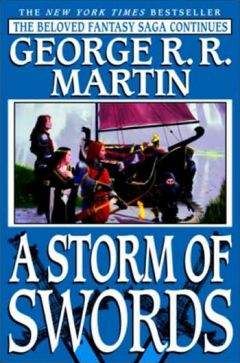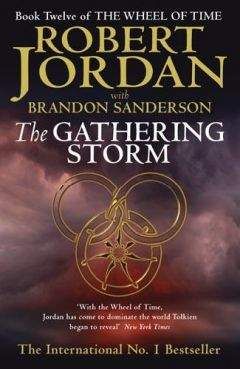“Yes, Archie?” Wolfe's voice came, peevish. He was at the bench, reporting, as I knew from his schedule, and he hates to be interrupted at that job. I told him about the telegram.
“Very well, call the number. Make an appointment for eleven o'clock or later.”
I walked back home, went to my desk, dialled the Midland number, and asked for Mr Duncan. Of course it could have been Mrs or Miss, but I preferred to deal with a man after our experience with Marie Leconne. A gruff voice with an accent said that Mr Duncan wasn't there and was there a message.
“Will he be back soon?”
“I don't know. All I know is that I can take a message.”
I thereupon delivered one, that Mr Duncan would be expected at Nero Wolfe's office at eleven o'clock, or as soon thereafter as possible.
He didn't come. Wolfe descended in his elevator sharp at eleven as usual, got himself enthroned, rang for beer, and began sorting plant cards he had brought down with him. I had him sign a couple of checks and then started to help with the cards. At half-past eleven I asked if I should ring the Midland number to see if Duncan had got the message, and he said no, we would wait until noon.
The phone rang. I went to my desk and told it: “Nero Wolfe's office, Goodwin speaking.”
“I got your message for Duncan. Let me speak to Mr Wolfe, please.”
I covered the transmitter and told Wolfe: “He says Duncan, but it's a voice I've heard. It's not a familiar voice, but by God I've heard it. See if you have.”
Wolfe lifted his instrument.
“Yes, Mr Duncan? This is Nero Wolfe.”
“How are you?” the voice asked.
“I’m well, thank you. Do I know you, sir?”
“I really don't know. I mean I don't know if you would recognize me, seeing me, because I don't know how foolishly inquisitive you may have been. But we have talked before, on the phone.”
“We have?”
“Yes. Twice. On June ninth, nineteen forty-three, I called to give you some advice regarding a job you were doing for General Carpenter. On January sixteenth, nineteen forty-six, I called to speak about the advisability of limiting your efforts on behalf of a Mrs Tremont.”
“Yes. I remember.”
I remembered too. I chalked it against me that I hadn't recognized the voice with the first six words, though it had been over two years since I had heard it-hard, slow, precise and cold as last week's corpse. It was continuing: “I was pleased to see that you did limit your efforts as I suggested. That showed-”
“I limited them because no extension of them was required to finish the job I was hired for. I did not limit them because you suggested it, Mr Zeck.” Wolfe was being fairly icy himself.
“So you know my name.” The voice never changed.
“Certainly. I went to some trouble and expense to ascertain it. I don't pay much attention to threats, I get too many of them, but at least I like to know who the threatener is. Yes, I know your name, sir. Is that temerarious? Many people know Mr Arnold Zeck.”
“You have had no occasion to. This, Mr Wolfe, does not please me.”
“I didn't expect it to.”
“No. But I am much easier to get along with when I am pleased. That's why I sent you that telegram and am talking with you now. I have strong admiration for you, as I've said before. I wouldn't want to lose it. It would please me better to keep it. Your advertisement in the papers has given me some concern. I realize that you didn't know that, you couldn't have known it, so I'm telling you. The advertisement disturbs me. It can't be recalled; it has appeared. But it is extremely important that you should not permit it to lead you into difficulties that will be too much for you. The wisest course for you will be to drop the matter. You understand me, don't you, Mr Wolfe?”
“Oh, yes, I understand you. You put things quite clearly, Mr Zeck, and so do I.
I have engaged to do something, and I intend to do it. I haven't the slightest desire either to please you or to displease you, and unless one or the other is inherent in my job you have no reason to be concerned. You understand me, don't you?”
“Yes. I do. But now you know.”
The line went dead.
Wolfe cradled the phone and leaned back in his chair, with his eyes closed to a slit. I pushed my phone away, swivelled, and gazed at him through a minute's silence.
“So,” I said. “That sonof abitch. Shall I find out about the Mid- land number?”
Wolfe shook his head. “Useless. It would be some little store that merely took a message. Anyway, he has a number of his own.”
“Yeah. He didn't know you knew his name. Neither did I. How did that happen?”
“Two years ago I engaged some of Mr Bascom's men without telling you. He had sounded as if he were a man of resource and resolution, and I didn't want to get you involved.”
“It's the Zeck with the place in Westchester, of course?”
“Yes. I should have signalled you off as soon as I recognized his voice. I tell you nothing because it is better for you to know nothing. You are to forget that you know his name.”
“Like that.” I snapped my fingers, and grinned at him. “What the hell? Does he eat human flesh, preferably handsome young men?”
“No. He does worse.” Wolfe's eyes came half-open. “I'll tell you this. If ever, in the course of my business, I find that I am committed against him and must destroy him, I shall leave this house, find a place where I can work-and sleep and eat if there is time for it-and stay there until I have finished. I don't want to do that, and therefore I hope I'll never have to.”
“I see. I'd like to meet this bozo. I think I'll make his acquaintance.”
“You will not. You'll stay away from him.” He made a face. “If this job leads me to that extremity-well, it will or it won't.” He glanced at the clock. “It's nearly noon. You'd better go and see if any more answers have arrived. Can't you telephone?”
Chapter Sixteen There were no more answers. That goes not only for Tuesday noon, but for the rest of the day and evening, and Wednesday morning, and Wednesday after lunch.
Nothing doing.
It didn't surprise me. The nature of the phone call from the man whose name I had been ordered to forget made it seem likely that there was something peculiar about the subscribers to Track Almanac and What to Expect, which was the name of the political and economic dope sheet published by the late Beula Poole. But even granting that there wasn't, that as far as they were concerned it was all clean and straight, the two publishers had just been murdered, and who would be good enough to answer such an ad. just to get asked a lot of impertinent questions? In the office after lunch Wednesday I made a remark to that effect to Wolfe, and got only a growl for reply.
“We might at least,” I insisted, “have hinted that they would get their money back or something.”
No reply.
“We could insert it again and add that. Or we could offer a reward for anyone who would give us the name of an Orchard or Poole subscriber.”
No reply.
“Or I could go up to the Fraser apartment and get into conversation with the bunch, and who knows?”
“Yes. Do so.”
I looked at him suspiciously. He meant it.
“Now?”
“Yes.”
“You sure are hard up when you start taking suggestions from me.”
I pulled the phone to me and dialled the number. It was Bill Meadows who answered, and he sounded anything but gay, even when he learned it was me. After a brief talk, however, I was willing to forgive him. I hung up and informed Wolfe: “I guess I'll have to postpone it. Miss Fraser and Miss Koppel are both out.
Bill was a little vague, but I gather that the latter has been tagged by the city authorities for some reason or other, and the former is engaged in trying to remove the tag. Maybe she needs help. Why don't I find out?”
“I don't know. You might try.”
I turned and dialled Watkins 9-8241. Inspector Cramer wasn't available, but I got someone just as good, or sometimes I think even better, Sergeant Stebbins.
“I need some information,” I told him, “in connection with this fee you folks are earning for Mr Wolfe.”
“So do we,” he said frankly. “Got any?”
“Not right now. Mr Wolfe and I are in conference. How did Miss Koppel hurt your feelings, and where is she, and if you see Miss Fraser give her my love.”
He let out a roar of delight. Purley doesn't laugh often, at least when he's on duty, and I resented it. I waited until I thought he might hear me and then demanded: “What the hell is so funny?”
“I never expected the day to come,” he declared. “You calling me to ask where your client is. What's the matter, is Wolfe off his feed?”
“I know another one even better. Call me back when you're through laughing.”
“I'm through. Haven't you heard what the Koppel dame did?”
“No. I only know what you tell me.”
“Well, this isn't loose yet. We may want to keep it a while if we can. I don't know.”
“I'll help to keep it. So will Mr Wolfe.”
“That's understood?”
“Yes.”
“Okay. Of course they've all been told not to leave the jurisdiction. This morning Miss Koppel took a cab to La Guardia. She was nabbed as she was boarding the nine o'clock plane for Detroit. She says she wanted to visit her sick mother in Fleetville, which is eighty miles from Detroit. But she didn't ask permission to go, and the word we get is that her mother is no sicker than she has been for a year. So we charged her as a material witness. Does that strike you as high-handed? Do you think it calls for a shakeup?”
“Get set for another laugh. Where's Miss Fraser?”
“With her lawyer at the D A's office discussing bail.”
“What kind of reasons have you got for Miss Koppel taking a trip that are any better than hers?”
“I wouldn't know. Now you're out of my class. If you want to go into details like that, Wolfe had better ask the Inspector.”
I tried another approach or two, but either Purley had given me all there was or the rest was in another drawer which he didn't feel like opening. I hung up and relayed the news to Wolfe.
He nodded as if it were no concern of his. I glared at him: “It wouldn't interest you to have one or both of them stop in for a chat on their way home? To ask why Miss Koppel simply had to go to Michigan would be vulgar curiosity?”
“Bah. The police are asking, aren't they?” Wolfe was bitter. “I've spent countless hours with those people, and got something for it only when I had a whip to snap. Why compound futility? I need another whip. Call those newspapers again.”
“Am I still to go up there? After the ladies get home?”
“You might as well.”
“Yeah.” I was savage. “At least I can compound some futility.”
I phoned all three papers. Nothing. Being in no mood to sit and concentrate on germination records, I announced that I was going out for a walk, and Wolfe nodded absently. When I got back it was after four o'clock and he had gone up to the plant rooms. I fiddled around, finally decided that I might as well concentrate on something and the germination records were all I had, and got Theodore's reports from the drawer, but then I thought why not throw away three more nickels. So I started dialling again.
Herald-Tribune, nothing. News, nothing. But the Gazette girl said yes, they had one. The way I went for my hat and headed for Tenth Avenue to grab a taxi, you might have thought I was on my way to a murder.



